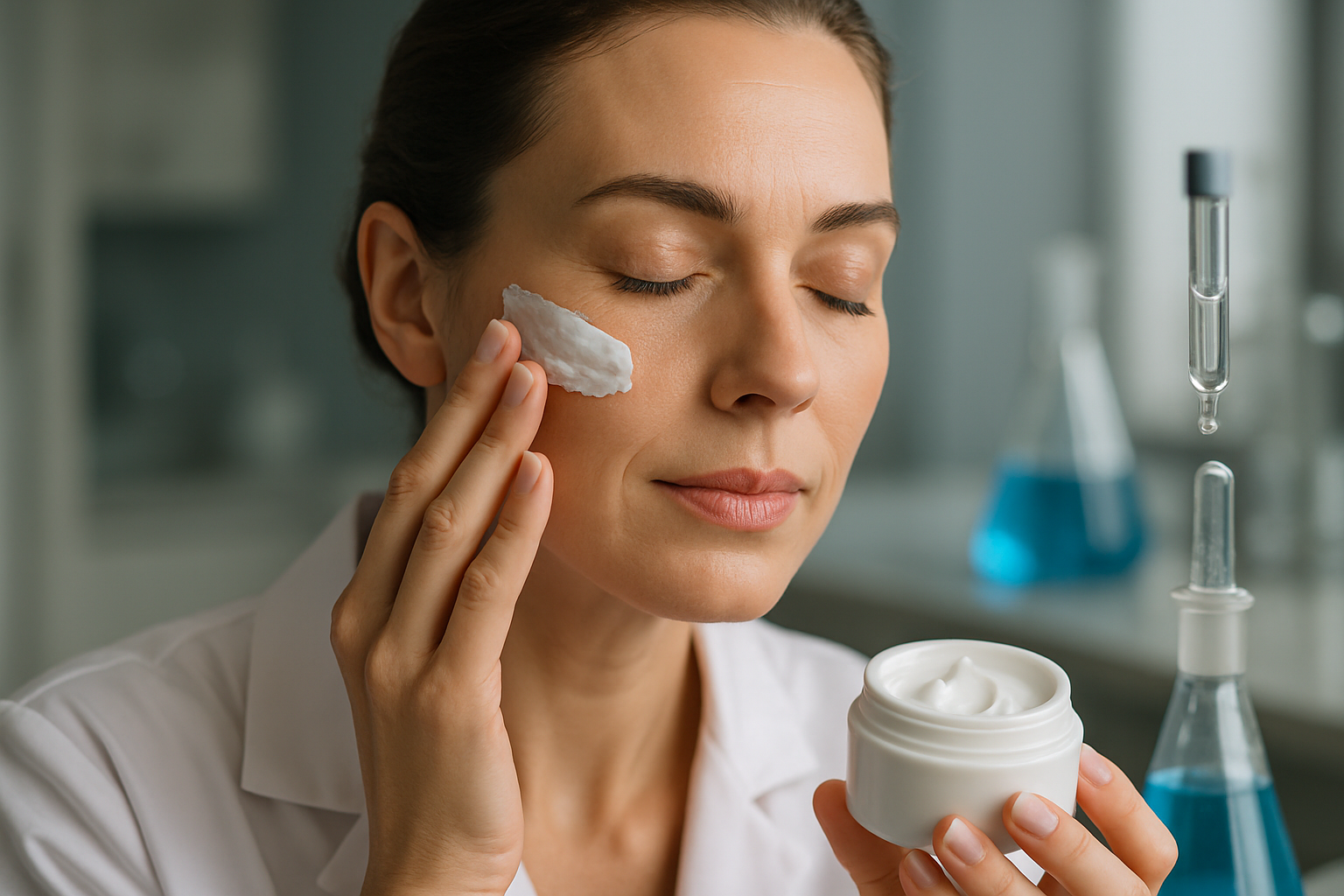Fermentation in Skincare: The New Frontier of Beauty
In the ever-evolving world of beauty and skincare, a groundbreaking trend is emerging that combines ancient wisdom with cutting-edge science: fermented skincare. This innovative approach harnesses the power of beneficial microorganisms to create potent, bioavailable ingredients that promise to revolutionize our daily routines. Fermentation, long revered in culinary traditions and gut health, is now making waves in the beauty industry. As consumers become increasingly conscious of what they put on their skin, fermented skincare offers a natural, effective solution that resonates with those seeking clean, sustainable beauty alternatives. Let's delve into this fascinating fusion of tradition and technology that's poised to transform the way we care for our skin.

During fermentation, the microorganisms produce enzymes that break down large molecules into smaller ones. This process can create new compounds, increase the concentration of existing beneficial components, and even eliminate certain undesirable elements. The result is a product that’s often more easily absorbed by the skin and potentially more effective than its non-fermented counterpart.
Moreover, fermentation can lead to the production of probiotics, postbiotics, and other beneficial compounds that support the skin’s microbiome. This microbial ecosystem on our skin plays a crucial role in maintaining skin health, barrier function, and overall appearance.
Historical Roots and Modern Revival
The use of fermented ingredients in skincare is not entirely new. In fact, it has deep roots in traditional Asian beauty practices, particularly in Korean and Japanese skincare rituals. For centuries, these cultures have used fermented ingredients like rice water, soybeans, and various herbs in their beauty regimens.
In Korea, the concept of “nu-ruk” (fermented grain) has been used in skincare for generations. Women would apply fermented rice water to their faces, believing it would brighten and soften their skin. Similarly, in Japan, sake brewers were known for their youthful-looking hands, a phenomenon attributed to their constant contact with fermented rice during the brewing process.
The modern revival of fermented skincare began in South Korea, where beauty brands started incorporating fermented ingredients into their products about a decade ago. This trend has since spread globally, with Western brands now also exploring the potential of fermentation in skincare formulations.
Benefits of Fermented Skincare
Fermented skincare products offer a range of potential benefits that are attracting attention from both consumers and skincare professionals:
-
Enhanced absorption: The fermentation process breaks down ingredients into smaller molecules, potentially making them easier for the skin to absorb and utilize.
-
Increased potency: Fermentation can concentrate the beneficial compounds in ingredients, making them more potent.
-
Improved stability: Some fermented ingredients are more stable and have a longer shelf life than their non-fermented counterparts, reducing the need for synthetic preservatives.
-
Microbiome support: Fermented products often contain probiotics and postbiotics that can support a healthy skin microbiome.
-
Gentle exfoliation: Some fermented ingredients produce natural alpha-hydroxy acids (AHAs), which can gently exfoliate the skin.
-
Antioxidant properties: The fermentation process can enhance the antioxidant properties of certain ingredients, helping to protect the skin from environmental stressors.
-
Suitability for sensitive skin: Many fermented skincare products are well-tolerated by sensitive skin types due to their gentle nature and lack of harsh chemicals.
Popular Fermented Ingredients in Skincare
As the fermented skincare trend gains momentum, several ingredients are emerging as stars in this category:
-
Fermented tea: Green tea, black tea, and other varieties are fermented to create potent antioxidant-rich extracts.
-
Fermented rice: Known for its brightening and moisturizing properties.
-
Galactomyces ferment filtrate: A byproduct of sake fermentation, believed to have anti-aging and brightening effects.
-
Bifida ferment lysate: A probiotic ingredient that may help strengthen the skin barrier and improve hydration.
-
Fermented honey: Offers antimicrobial and moisturizing benefits.
-
Fermented soy: Rich in isoflavones, which may help improve skin elasticity and reduce the appearance of fine lines.
-
Lactobacillus ferment: A probiotic ingredient that can help balance the skin’s microbiome and improve its barrier function.
The Future of Fermented Skincare
As research in this field continues to grow, we can expect to see even more innovative applications of fermentation in skincare. Scientists are exploring new strains of beneficial bacteria and fungi, as well as novel fermentation techniques to create increasingly effective and targeted skincare solutions.
One exciting area of development is the concept of personalized fermented skincare. Just as probiotics can be tailored to individual gut microbiomes, future skincare products might be customized based on an individual’s unique skin microbiome profile.
Another promising avenue is the combination of fermentation with other cutting-edge technologies, such as encapsulation or delivery systems, to further enhance the efficacy and stability of fermented ingredients.
Challenges and Considerations
While fermented skincare holds great promise, it’s not without challenges. The complexity of the fermentation process means that product development can be time-consuming and costly. Additionally, ensuring consistency in fermented ingredients across batches can be challenging.
There’s also a need for more rigorous scientific studies to fully understand and validate the benefits of fermented skincare ingredients. As the field grows, we can expect to see more research addressing these questions.
Consumers should also be aware that not all fermented skincare products are created equal. The efficacy of these products can vary widely depending on the specific ingredients used, the fermentation process, and the overall formulation. As with any skincare product, it’s important to choose products from reputable brands and to patch-test new products before incorporating them into a regular skincare routine.
In conclusion, fermented skincare represents an exciting frontier in the beauty industry, blending ancient wisdom with modern science to create innovative, effective skincare solutions. As research progresses and more brands embrace this trend, we can expect to see fermented ingredients playing an increasingly prominent role in the future of skincare. Whether you’re a skincare enthusiast or a beauty industry professional, keeping an eye on this evolving trend could provide valuable insights into the next big thing in beauty and wellness.






